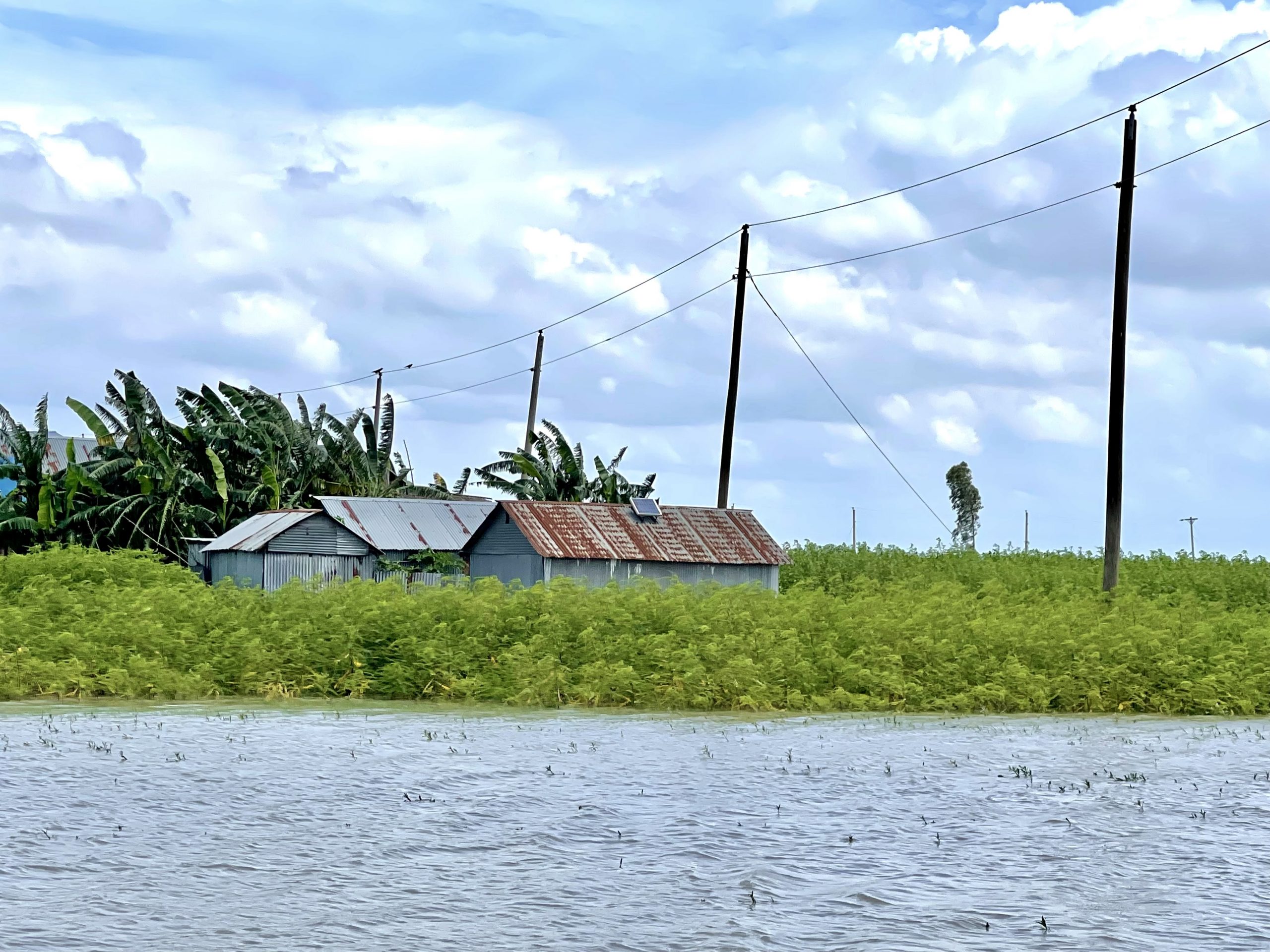
Bangladesh
Kurigram District, Bangladesh
Our work in Bangladesh
The Bangladesh sub-project of the DecouplingIT project investigates whether IT-driven initiatives and policies align with the challenges of climate and disaster-prone regions, assessing their impact on socio-economic development in one of the world’s most climate-vulnerable countries. Ranked 9th globally for climate disaster risk by the World Bank, Bangladesh faces severe threats from rising sea levels, which could submerge 17% of its territory and erode 30% of its agricultural land, endangering healthcare, livelihoods, and food security. DecouplingIT project’s one of the field sites in Bangladesh is the flood-prone char islands (riverine islands) in the northern districts. Home to over 5 million people, these islands are highly vulnerable. Seasonal and flash floods, driven by erratic monsoons and glacial melt, frequently displace thousands. Floods also destroy crops, deposit excessive silt, lead to the formation of sandbars, and cause riverbank erosion, further deepening poverty and instability in these marginalised communities.
The state has largely abstained from establishing permanent infrastructure in these char islands due to their unstable nature. This leaves char residents reliant on hours-long boat journeys to the mainland for essential services, including healthcare, education, groceries, and public services. In absense of the state infrastructure here, few NGOs are providing very limited but vital services, such as healthcare through floating hospitals, digital and mHealth screenings, agricultural extension training, and solar-powered electricity solutions. However, these efforts are very insufficient to address the socio-economic challenges of adaptation in this vulnerable region.
Amid these localised challenges, the government has introduced the ambitious Smart Bangladesh Vision 2041, aiming to transform the country into a developed nation by leveraging advanced technologies such as AI, blockchain, and robotics, with a focus on building smart infrastructure. he authorities view technological advancement as synonymous with growth and development, resulting in a focus on prioritising these technologies, which are inherently energy-intensive. However, there is a stark disparity between the resources allocated to such initiatives and the lack of basic technological and socio-technical services in climate-affected areas like the chars.
This disconnect between the climate change-affected populations in the chars, who remain largely excluded from government services—and the energy-intensive technological ambitions of Smart Bangladesh underscores a “miscoupling” between technology and service delivery. By examining the climate vulnerabilities in the chars, the socio-technical gaps in service provision, and the political narratives driving ambitious ‘development’ agendas, this research seeks to evaluate how IT-driven livelihood initiatives align with, or diverge from, the lived realities of marginalised communities. Through ethnographic fieldwork, the project seeks to understand whether Smart Bangladesh 2041 vision and digital policies are reaching the people of the char islands or perpetuating systemic exclusions.
Researchers Working on this Subproject
Hasib Ahsan
In July 2023, we travelled by engine boat to a char land community in the Kurigram district during a flood. The rising waters had submerged houses and paddy fields, leaving the area heavily affected.
Activities related to the Bangladesh subproject
-
Fieldwork entries from the Char islands in northern Bangladesh and the Western Cape in South Africa
Fieldwork entry from the Char islands in northern Bangladesh Written by Hasib Ahsan What does a ‘Smart Bangladesh’ when the technology the Bangladeshi government has invested in is not […]
-
Panel speaker: Artificial Intelligence, Sustainable Society, and Global Development
On February 11th, 2025, Hasib Ahsan, PostDoc at the Decoupling IT project, joined experts from Arizona State University (ASU) and SUNY Korea as a speaker (virtually) at an open forum […]
-
Workshop and panel session: AI, Society and Others
Hasib Ahsan, postdoctoral researcher from the IT University of Copenhagen, hosted a panel titled “AI and Society – Questions and Possibilities for the Others” at the 13th International Conference on […]